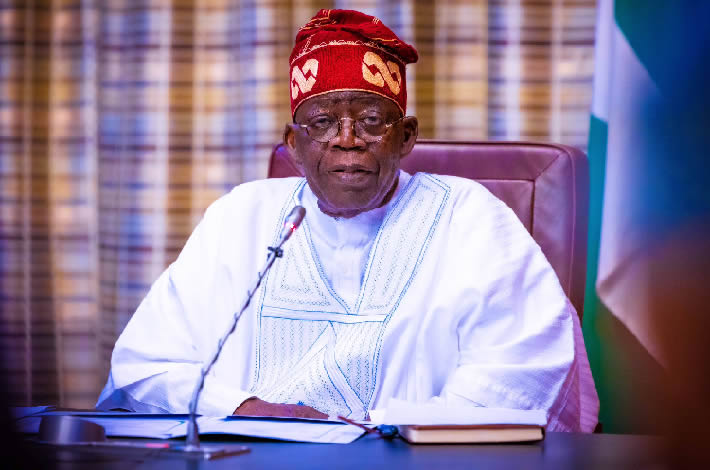Mr Gbenga Komolafe, Managing Director of the Nigerian Upstream Petroleum Regulatory Commission (NUPRC), said new equipment has been acquired by the commission to monitor every litre of oil taken from Nigeria.
According to Komolafe, the new initiative will create a paradigm shift in oil-related revenue generation in the country.
Komolafe disclosed this on Tuesday at an event organised by HEDA Resource Centre and Centre for Fiscal Transparency and Integrity Watch (CFTI).
The two-day programme two-day National Anti-Corruption Conference held in Abuja, Nigeria’s capital with the theme ‘Nigeria and the Fight against Corruption: Reviewing the Buhari Regime and Setting Agenda for the Tinubu Administration’ ends today (Wednesday).
It was attended by no fewer than 80 participants drawn from across the country, foreign countries along with representatives of institutional bodies.
The summit comes on the 20th anniversary of the African Union, AU Convention on Preventing and Combating Corruption declaration which took place in July 2003.
Earlier at the event, a Senior Advocate of Nigeria, Mr Femi Falana, said billions of dollars were being lost by Nigeria to oil theft and the refusal of oil companies to pay the total expected taxes amounting to billions of naira over the years.
Falana said such behaviours had failed to attract any sanctions.
He said Nigeria also failed to put a mechanism in place to determine how many litres of oil are taken from the country’s onshore and offshore.
Falana, while delivering his lead presentation on the theme: Effective recovery of illicit assets and blocking opportunities for Illicit Financial Flow; Role of international frameworks, Bodies, Courts and instruments in a context of new dispensation, described Illicit financial flow as a challenge for the country.
“Illicit financial flow is a challenge to Nigeria and the recent devaluation of Nigeria’s currency. Civil servants cannot live on their salaries which might draw them to corruption,” he said.
HEDA Chairman, Olanrewaju Suraju, noted that there had been no reason to believe that there was going to be any serious fight against corruption given the experiences in the past years.
He said Nigeria’s hope is rekindled by the iron-cast will of Nigerians and the irresistible wind of change blowing against corruption across the world, which Nigeria cannot exempt itself from.
Suraju said there was a need to set an agenda for constructive CSO engagement with the new government in Nigeria to develop a framework for good governance.
President Bola Tinubu was tasked with the immediate need to decisively fight corruption to halt the country’s possible drift into a major economic crisis amidst reports that Nigeria loses about $60 billion every year to corruption.
HEDA observed that Nigeria with a debt portfolio of N77 trillion, inflation rate of 23 per cent, and GDP of 2.35 per cent coupled with unrelenting zeal for graft by public officials, the new government needs to take a bold step to block waste, stop corruption and recreate new public confidence to save the country from social crisis.
Some of the agenda set for the new government include fast-tracking the whistleblower law, paying backlog of royalties by oil companies, getting anti-corruption courts to speed up prosecution of corruption cases, and implementing the public procurement law.
The National Assembly was also charged to affirm Nigeria’s readiness to join the international Special Task Force on Corruption (SATF) to enable the efficient recovery of illicit funds.
Participants also listed the retrieval of billions of naira paid as oil subsidies in the past years, oil theft, public funds stolen by political actors and a significant cut in the cost of governance as some of the critical steps that Tinubu should take to save the country.
Represented at the event were Vice President Kashim Shettima, Inspector General of Police, Mr Kayode Egbetokun, National Security Adviser, Mr Nuhu Ribadu, the National Assembly, the Judiciary, Ministry of Interior and international partners, the United Nations Development Programme, UNDP, the United States and Dutch Embassies, MacArthur Foundation, World Bank, United Nations Office on Drugs and Crime, labour, media and the civil society.
Ribadu expressed the commitment of the Tinubu-led administration to build the capacity of investigators, as part of efforts to enhance the war against corruption in the civil service and Nigeria as a whole.
Ribadu, who was represented by the Special Adviser, Legal Department, NSA, Anthony Oluborode, maintained that a cap would be placed on fiscal expenditures for the construction of government buildings and salaries related compensation, packages of elected officials, adding that such expenditure will have a low priority in the Tinubu-led administration and transparent.











Leave a Reply